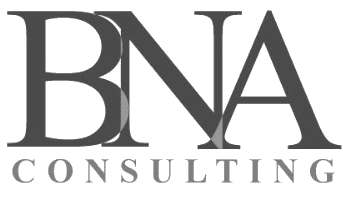Accounting Standards and Regulations in London: A Comprehensive Guide
If you are a business owner, the best accountant in London, or an investor in London, you need to be aware of the accounting standards and regulations that apply to your financial reporting. Accounting standards are a set of rules and principles that define how financial transactions, accountant consultation, and events should be recorded, measured, presented, and disclosed in financial statements. Accounting regulations are the legal framework and enforcement mechanisms that ensure compliance with accounting standards.
Why are accounting standards and regulations important?
Accounting standards and regulations are important for several reasons:
- They ensure the quality, comparability, and reliability of financial information. This helps users of financial statements, such as investors, creditors, regulators, and tax authorities, to make informed decisions and judgments.
- They promote transparency and accountability in financial reporting. This helps to prevent fraud, corruption, and mismanagement, and to protect the interests of stakeholders.
- They facilitate cross-border trade and investment. This helps to reduce barriers and costs for businesses and investors operating in different jurisdictions.
What are the main accounting standards and regulations in London?
The main accounting standards and regulations that apply to businesses and entities in London are:
- UK-adopted international accounting standards (UK-adopted IAS). These are the international accounting standards (IAS) that have been adopted by the UK after leaving the EU. They are based on the international financial reporting standards (IFRS) issued by the International Accounting Standards Board (IASB), but may have some modifications or exceptions for UK-specific circumstances. UK-adopted IAS applies to all UK-incorporated groups with securities admitted to trading on a UK-regulated market, such as the London Stock Exchange. They also apply to some other entities that choose or are required to use them.https://www.gov.uk/guidance/accounting-for-uk-companies
- UK generally accepted accounting practice (UK GAAP). These are the accounting standards issued by the Financial Reporting Council (FRC), the UK’s independent regulator for audit, accounting, and reporting. UK GAAP consists of three main tiers: FRS 100 Application of Financial Reporting Requirements; FRS 101 Reduced Disclosure Framework; and FRS 102 The Financial Reporting Standard applicable in the UK and the Republic of Ireland. UK GAAP applies to all other entities that do not use UK-adopted IAS.https://www.frc.org.uk/accountants/accounting-and-reporting-policy/uk-accounting-standards
- Statutory Instruments (SIs). These are the laws made by ministers or government departments under powers given by Acts of Parliament. SIs cover various aspects of accounting regulation, such as disclosure requirements, filing deadlines, audit exemptions, and penalties for non-compliance. Some examples of SIs relevant to accounting are The Companies Act 2006 (Accounts and Reports) Regulations 2008; The International Accounting Standards (Delegation of Functions) (EU Exit) Regulations 2021; and The Companies (Miscellaneous Reporting) Regulations 2018.https://www.investopedia.com/terms/i/ias.asp
How can you comply with accounting standards and regulations in London?
To comply with accounting standards and regulations in London, you need to:
- Identify which accounting standards apply to your entity based on its legal form, size, sector, and listing status.
- Prepare your financial statements in accordance with the relevant accounting standards and principles.
- Disclose all material information and comply with all disclosure requirements applicable to your entity.
- File your financial statements with the appropriate authorities within the prescribed time limits.
- Appoint a qualified auditor to audit your financial statements if required by law or by your stakeholders.
- Keep proper records and documentation to support your financial statements and transactions.
Where can you find more information and guidance on accounting standards and regulations in London?
You can find more information and guidance on accounting standards and regulations in London from various sources, such as:
- The FRC website HTTPS://www.legislation.gov.uk/uksi/2021/609/made, provides access to UK accounting standards, guidance notes, factsheets, consultations, publications, news, and events.
- The GOV.UK website, which provides access to SIs, guidance on accounting for UK companies, information on filing accounts with Companies House, tax implications of accounting standards, and Brexit updates.
- The IASB website provides access to IFRSs, exposure drafts, interpretations, educational materials, news, and events.
- The UK Accounting Standards Endorsement Board (UK Endorsement Board) website, provides access to UK-adopted IASs, endorsement criteria, consultations, publications, news, and events.
Accounting standards and regulations in London are complex and dynamic. It is important to keep yourself updated on the latest developments and changes that may affect your financial reporting. You may also seek professional advice from a qualified best accountant in London or BNA Consulting Services if you need further assistance or clarification.


